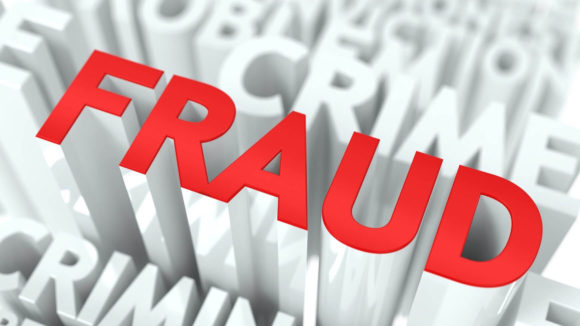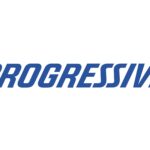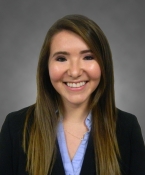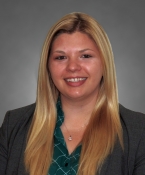A high-profile insurance fraud case on appeal in New York is being closely watched by fraud fighters across the country for the impact the decision will have on no-fault law.
The case, Andrew Carothers, M.D., P.C. v. Progressive Insurance Company, involves a carrier’s defense of delayed payments and nonpayment based on a medical provider’s “fraudulent incorporation” due to the operational requirements that exist for medical practices. Oral arguments before the New York Court of Appeals are being set, and the matter should be ruled on this year.
Background
As a safeguard to ensure that medical decisions are made solely by licensed professionals, New York law prohibits the corporate practice of medicine. Under the Business Corporation law, providing medical services is restricted to licensed professionals or an “organization otherwise authorized by law,” [1] namely PCs or PLLCs whose shareholders are all licensees of one profession and only practice said profession.[2] Furthermore, licensed professionals cannot share their profits or split fees with non-licensed professionals.[3] That said, violations of these provisions often arise when medical practitioners engage management companies to run their medical businesses.
Under 11 NYCRR 65-3.16(a)(12), no-fault carriers are not required to provide reimbursement for “basic economic loss” for services rendered by unlicensed or fraudulently licensed healthcare providers. This provision extends to medical providers that are in violation of New York’s Business Law.
Upholding a Carrier’s Defense of Nonpayment
On April 5, 2017, New York’s Second Judicial Department upheld a judgment rendered by the Richmond County Civil Court in the matter of Andrew Carothers, M.D., P.C. v. Progressive Insurance Company,[4] affirming the insurance carrier’s defense for nonpayment by finding the practice to have violated New York law because a majority of the practice was controlled by nonphysicians, Hillel Sher and Irina Vayman.[5] In 2004, Dr. Carothers formed a professional service corporation (the “Practice”) to perform MRI scans at three separate MRI facilities that were owned and controlled by Sher.
The corporate filings list Dr. Carothers as the sole owner, shareholder, director and office of the Practice. Insurance carriers, including Progressive, denied numerous claims from the Practice for first-party no-fault benefits, arguing that the Practice was fraudulently incorporated. Evidence at trial revealed that the Practice’s profits were transferred to Sher and Vayman through grossly inflated lease payments made to a company owned and controlled by Sher and through the direct transfer of funds by Vayman, who served as the Practice’s executive secretary, into her own personal accounts.
During 2005 and 2006, Sher and Vayman received a total of $12.2 million from the Practice, while Dr. Carothers received $133,000. In addition to splitting profits with non-professionals, Dr. Carothers was found to have no significant involvement in the management of the Practice, as Vayman was in charge of hiring all personnel and signed and issued payments from the Practice’s operating account.
At issue before the Appellate Division was whether the jury was properly instructed on the elements of an insurer’s fraudulent incorporation defense. The Court had instructed the jury that the insurers had to establish that Sher and/or Vayman were de facto owners of the Practice or that they exercised substantial control over same.
For de facto ownership, the jury would need to find that the nonphysicians exercised dominion and control over the Practice and its assets, and that the nonphysicians shared risks, expenses and interests in the profits and losses of the Practice. The jury was further instructed that, to find control, the nonphysicians would have had a significant role in the guidance, management and direction of the Practice.
In addition, the court provided the jury with a list of factors that they might want to consider in making their determination, as they were instructed that a decision should be made based on the totality of the circumstances involved. The jury subsequently found that the insurers proved their defense that the Practice was fraudulently incorporated by clear and convincing evidence, and that Dr. Carothers was not engaged in the practice of medicine during the time the Practice was in business as required by New York law.[6]
In a unanimous decision by the four judges, the Appellate Division set aside the verdict as to the determination that Carothers failed to practice medicine, but upheld the verdict as to the finding of fraudulent incorporation, thereby affirming insurance carrier’s defense of nonpayment under 11 NYCRR 65-3.16(a)(12).
In October 2017, the Practice was granted leave to appeal its decision to the New York Court of Appeals. Oral arguments as to the elements necessary to establish the defense of fraudulent incorporation are expected to occur sometime in 2019.
State Farm v. Mallela: “Actual Ownership”
Carothers is not the first “fraudulent incorporation” case to head to the New York Court of Appeals. In 2005, the Court of Appeals held in State Farm Mut. Auto. Ins. Co. v. Mallela [7] that medical providers that are not solely owned and controlled by physicians, as required under New York law, are ineligible for reimbursement of no-fault claims. The court further opined that carriers may look at “actual ownership,” meaning whether a practice is actually owned or controlled by an unlicensed individual, rather than be confined by the names listed on incorporation documents.
Before Mallela, there were several concerns regarding how a ruling against health care providers would impact no-fault law where insurance carriers could potentially delay payments due to the operational requirements that exist for medical practices. One of the concerns was whether some carriers could delay the payments for highly technical violations, such as non-payment of child support, since a failure to pay child support in New York can trigger revocation of professional licenses.
The Court of Appeals addressed these concerns by stating how carriers are required to have “good cause” before delaying or refusing payment to providers that are under suspicion of being unlicensed or fraudulently incorporated. The court further noted that technical violations, such as revocation of a license for having child support payments in arrears, does not rise to the level of fraud that would prevent a carrier from denying payment under 11 NYCRR 65-3.16(a)(12).
Carriers’ Nonpayment/Delay of Payments
Based on Carothers and Mallela, insurance carriers have a number of factors that they may consider to demonstrate “good cause” for delaying or withholding no-fault payments to a professional corporation for medical services if the practice is fraudulently incorporated. Essentially, carriers will want to look to everyone involved in the practice to determine if anyone other than a licensed professional can be viewed as a “de facto owner” with substantial control over the business. Some specific questions that carriers can consider when looking for fraudulent incorporation are as follows:
- Did the non-physician employee exercise “dominion and control over the [practice],” including control over the assets?
- Did the non-physician employee share the risk of the business and did they have an interest in the practice’s profits and losses?
- Were profits funneled by the physician to the nonphysician?
- Did the non-physician have a significant role in the guidance management and direction of the business?
- Who controlled the practice’s finances and bank accounts? Were they managed by an unlicensed entity?
- Does the licensed medical professional control and manage the employees or at least know who they are?
- Does the licensed medical professional file the tax returns or keep books or records of the business?
Though none of these factors alone is sufficient to establish fraudulent incorporation, the issues of dominion and control and de facto ownership could lead to a finding of fraudulent incorporation based on the totality of the circumstances involved.
In considering these factors, another tactic for insurance carriers to consider is the growing trend of courts granting carriers’ motions to compel discovery. Insurers may now be able to obtain information regarding a licensed professional’s role in their business, which is normally information that only the health care provider has and is not readily available to carriers. [8] Courts have also ruled that insurance carriers are entitled to discover documents and to take depositions of physicians who claim to own the health care practice. Moreover, insurers have also been supported in their attempts to depose other individuals involved in the business, including the alleged “actual” owner.
Prosecutorial Application
Insurance carriers can use fraudulent incorporation as a defense to delayed or withheld payment of claims. However, a finding of fraudulent incorporation can also be used in a prosecutorial manner. Generally speaking, providers that violate New York’s prohibition on the corporate practice of medicine can face fines and penalties, as well as prosecution.
Carriers can have their Special Investigative Unit (SIU) scrutinize a suspect provider’s discovered records and, pursuant to the provisions in their policies, conduct examinations under oath about a licensed professional’s role in the practice. Once sufficient evidence supporting a claim of fraudulent incorporation is obtained, the carrier can turn the case over to the U.S. Attorney for consideration. The U.S. Attorney can then seek an indictment of all of those involved and seek conviction for health care fraud.
Pending Appeal
It is unlikely that the New York Court of Appeals will reverse a unanimous decision held by the four judges in the Appellate Division of the Supreme Court. However, the Practice’s counsel raises significant issues regarding the jury instructions that may have swayed the jury to rule against the Practice.
The Civil Court instructed the jury that an “adverse inference” could be drawn based on the invocation of the Fifth Amendment right against self-incrimination by the non-physician employees during their depositions. This adverse inference could have highly persuaded the jury to find against the Practice in that the invocation of the Fifth Amendment meant that the non-physicians were de facto owners.
Although the Appellate Term stated that it was a “harmless error” to instruct the jury of an adverse inference, the Court of Appeals may find that this error was not harmless, since no such inference can be drawn when the privilege is invoked by a non-party witness or the non-physician employees. Regardless of the outcome of the appeal, Carothers and Mallela will continue to have a significant impact on the no-fault community.
- http://www.op.nysed.gov/corp/corppractice.htm
- N.Y. Bus. Corp. L. §§ 1503, 1506 (2012).
- 8 NYCRR 29.1(b).
- Andrew Carothers, M.D., P.C. v. Progressive Ins. Co., 42 Misc. 3d 30.
- 2017 N.Y. Slip Op. 02614 (2d Dept. 2017).
- N.Y. Bus. Corp. L. § 1507 (2012).
- 175 F. Supp. 2d 401 (2005).
- All Boro Psychological Servs., P.C. v. Allstate Ins. Co. (affirming a decision granting an insurance carrier discovery regarding weather the provider was ineligible to receive assigned first-party no-fault benefits due to the provider’s failure to comply with applicable licensing laws).
Topics Carriers New York Fraud Medical Professional Liability
Was this article valuable?
Here are more articles you may enjoy.



 USAA to Lay Off 220 Employees
USAA to Lay Off 220 Employees  Progressive Records Five-Fold Increase in Q1 Net Income
Progressive Records Five-Fold Increase in Q1 Net Income  Cargo Owners in Baltimore Disaster Face ‘General Average’ Loss Sharing, MSC Says
Cargo Owners in Baltimore Disaster Face ‘General Average’ Loss Sharing, MSC Says  Undercover St. Louis Officer Beaten by Colleagues Awarded $23.5M
Undercover St. Louis Officer Beaten by Colleagues Awarded $23.5M 



